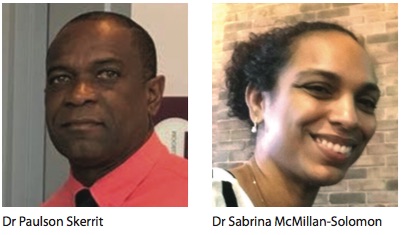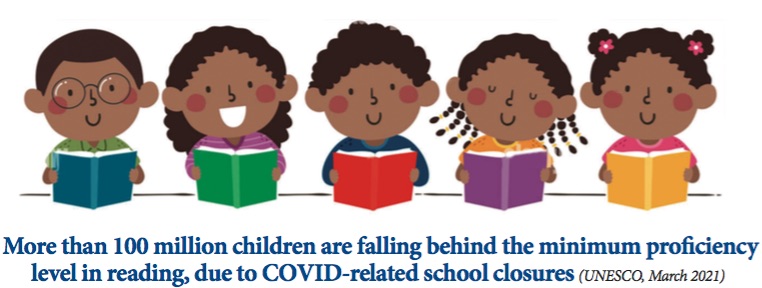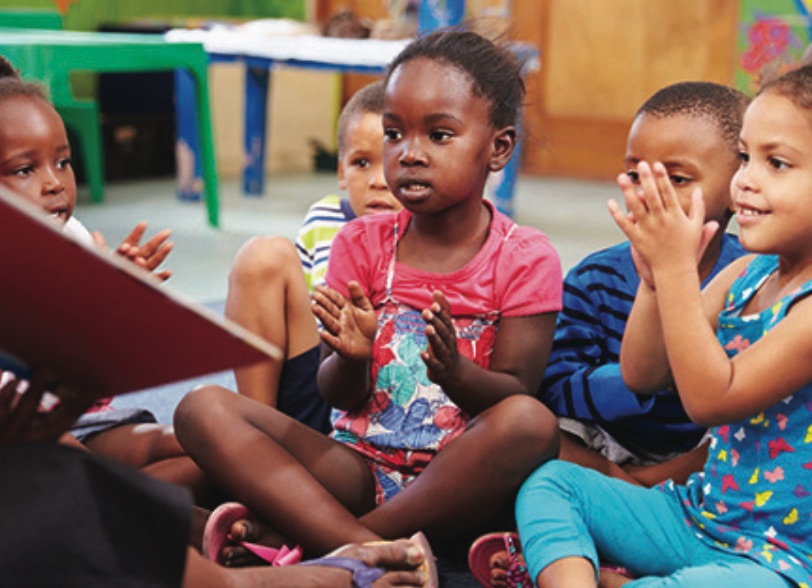Helping children develop their capabilities with the written word
When I was a child, my mother would often leave books strategically open on exciting pages for me to “stumble across” in an attempt to encourage me to read more fluently. Throughout my early school years, I sometimes struggled because of my mental health, but the love for reading that was nurtured by my parents was a solid foundation for me to build upon.
Science Digest described the remarkable human ability to read this way: “In an instant, your eyes and mind are playing hunches, cutting corners, filling gaps, and dealing with an information processing task that would challenge the most ingenious computer.”
Not all children have the privilege of experiencing such encounters with the written word in their early formative years. According to Dr Paulson Skerrit, who worked with the team that now serves as the Operating Committee to develop the Psychoeducational Diagnostic and Intervention Clinic (PEDIC), and who has been instrumental in the formation of the Reading Clinic at PEDIC; those who have had “positive pre-primary literacy experiences” (like being read to by parents with a positive attitude towards reading and a number of years of pre-primary school education) tend to have stronger literacy development.
With the COVID-19 pandemic widening the gap of social inequality, it has been stated that “more than 100 million children are falling behind the minimum proficiency level in reading, due to COVID-related school closures” (UNESCO, March 2021). In a world that is increasingly digital, students who have access to resources such as digital literacies, reliable devices, and steady internet are at an advantage. PEDIC has looked into the effect of “reading loss’” during extended school closure, and found that lower income students are more affected by being out of school and not having the home resources to support their literacy development. In response to this, PEDIC, with its highly qualified lead interventionist, Dr Sabrina McMillan-Solomon, rolled out the university-based Reading Clinic to offer reading consultancy, assessment and intervention services.
Explaining the importance of supporting students with interventions such as the Reading Clinic, Dr Skerrit says, “My expertise lies in two areas. One has to do with reading and the teaching of literacy, and I’ve also worked with Deaf students, particularly in the area of reading. This is because reading has been a crisis in Trinidad and Tobago, as in many other countries.”

He stresses that “literacy issues are not unique to Trinidad and Tobago”, and while we have introduced some evidence-based initiatives, our education system still has a way to go with how it manages students in unique situations.
“Students are unique social beings,” he explains, “so there are different factors that are going to influence their achievement.” And their instructional needs vary.
“Talking with teachers in the school system, they indicate that we have alarming levels of children who cannot read or who are struggling with reading,” he says.
Across the world, those who fall behind in literacy are predominantly from more marginalised communities, who tend to have less resources and support. This includes students with disabilities and those from low income households.
He says, “when we started PEDIC, we found that many of the underserved, many of the marginalised students who were struggling, did not have access to quality assessment. So PEDIC provides that at a lower cost than private institutions. We provide a range of assessments, for example for dyslexia screeners, as well as for cases involving neurodivergence like autism or ADHD (Attention Deficit Hyperactivity Disorder).”
Dr Skerrit began his journey into the world of education with a Bachelor of Education in Primary Education — Special Needs Education, and went on to do a Master of Science in Teacher Education — Education of the Deaf and Hard of Hearing. He followed this with a PhD in Education—Literacy Studies. His research agenda has taken him into the fields of reading education for struggling readers; education of the Deaf and Hard of Hearing; and professional sign language interpreting.

His community work also delves into the realm of training and advocating for the role of sign language interpreters; input into the design and implementation of an interpreting and information relay service through the CVAS (Communication Video Relay Service) platform for the Deaf and the Blind; and developing policy and programmes to improve the academic achievements of the Deaf and Hard of Hearing. He has also partnered with non-governmental organisations such as the Dyslexia Association, the National Centre for Persons with Disabilities (NCPD), the Deaf Empowerment and Advancement Foundation (DEAF) and The Trinidad and Tobago Association for the Hearing Impaired (TTAHI) to promote educational and career opportunities for at-risk youths.
PEDIC also provides training for teachers and parents. As Dr Skerrit explains, part of changing our children’s relationship with reading is changing the mindset of parents and teachers when it comes to introducing them to the world of books and other text formats. The traditional hierarchy that declares what is considered good literature is outdated.
“In the past, people had limited views of what might be a more important aspect of literacy,” he notes. “For example, if a young child was reading a comic book, parents or teachers might reprimand that child — but comic books are a genre that is amazing and supports visualising and reading between the lines, making inferences and predictions.”

The educators at the PEDIC Reading Clinic are especially concerned with evidence-based literacy instruction. This is because some methods used to teach reading have produced readers who guess at words, are poor at pronouncing new words, and read inaccurately because they confuse similar-looking words. It is important, he says, to have high expectations of the learning capacity of all clients, whether they are “advantaged” or “disadvantaged”.
“We are not into excuses for not teaching children to read,” states Dr Skerrit.
“People seem to make the assumption that reading is natural and easy, but it isn’t. Reading is a complex linguistic achievement,” says Dr Skerrit.
We sometimes underestimate how much is going on inside of our brains when we look at a piece of text and are able to recognise and comprehend its meaning. In order to learn where a child, or even an adult, may need support, it is vital to identify where the issue is.

“One of the things that we need to provide, that is key for readers, is assessments,” says Dr Skerrit. “That’s one of the things that we do at PEDIC. In addition to comprehensive psychoeducational assessments that are used to estimate intellectual ability; general academic achievement; and adaptive, behavioural and emotional functioning of students; we also administer standardised reading assessments; screening to identify clients at a high risk for dyslexia; group reading assessments; and informal reading assessments; that allow us to identify what might be the child’s specific problem with reading. You need assessment, diagnosis, and very specific interventions.” There is no one-size-fits-all solution.
Assessments at the Reading Clinic use standardised and informal instruments to get a better sense of the specific reading skill challenges and where they may need additional support. This helps the PEDIC team to come up with targeted reading interventions, made up of instructional sessions, to work on these challenges. With the emphasis on digital learning since the on-set of the COVID-19 pandemic, the Reading Clinic utilises a digital platform that has activities and resources for students, their parents and teachers. They also have access to a multidisciplinary team that includes clinical psychologists, reading and learner intervention specialists, as well as partnerships with speech and language pathologists, and behavioural and occupational therapists.

The goal of PEDIC has been to provide accessible, low cost and high quality services to the community, in assessment and intervention, as well as research, training, teaching and advocacy for policy change. The PEDIC Reading Clinic hopes to bridge the inequality gap for student learning specific to literacy and help those who may have previously fallen through the cracks of the academic system.
To contact the PEDIC Reading Clinic, email PEDICReadingClinic@sta.uwi.edu or call 662-2002, extension 84511 or 84512.